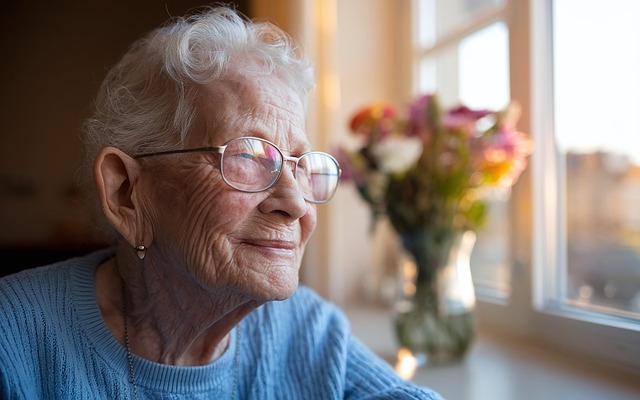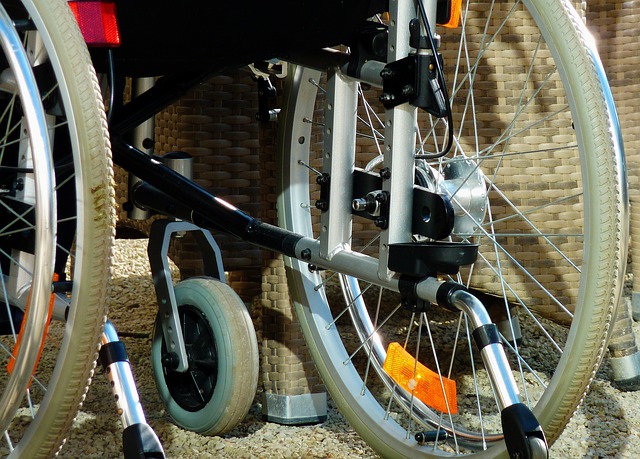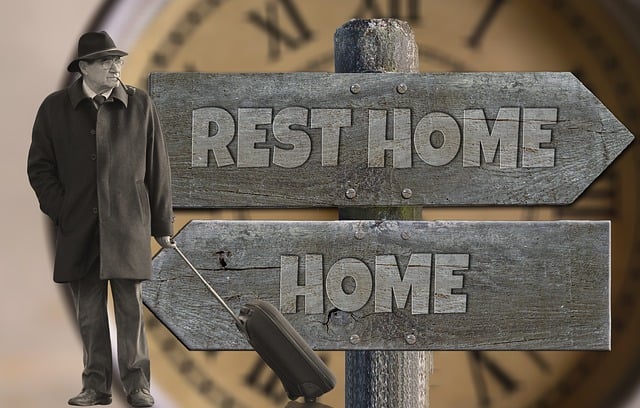Protecting senior citizens from sexual abuse is a critical issue in Connecticut, where an aging population makes the vulnerable demographic more susceptible to exploitation. Elderly sexual assault lawyer Connecticut has seen a rise in cases targeting the elderly, often taking advantage of their physical and cognitive vulnerabilities. This article delves into the complexities of this problem, examining the unique challenges faced by seniors and the need for specialized legal representation. We preview effective strategies and legislative efforts to combat this growing concern, emphasizing the vital role an experienced elderly sexual assault lawyer plays in ensuring justice and support for Connecticut’s senior citizens.
Understanding Elderly Sexual Assault in Connecticut

Elderly sexual assault is a critical issue in Connecticut, often overlooked due to societal taboos surrounding aging and intimacy. According to the Connecticut Network to End Sexual Assault (CNESA), elderly victims of sexual abuse face unique challenges. Many older adults may be hesitant to report such incidents due to fear, shame, or a belief that nothing can be done. Moreover, abusers often target vulnerable seniors who live alone, making prevention and detection even more difficult. A recent study by the National Center on Aging and Crime revealed that nearly 1 in 5 women aged 65 and older have experienced sexual violence, with many cases going unreported.
In Connecticut, an elderly sexual assault lawyer plays a pivotal role in advocating for these victims. Legal professionals specializing in this field possess in-depth knowledge of the complexities involved in prosecuting such crimes against the elderly. They understand the need for sensitive handling, as survivors may have sustained physical and emotional injuries that require specialized care. These lawyers also recognize the importance of public awareness campaigns to educate both seniors and caregivers on recognizing potential signs of abuse. For instance, subtle changes in behavior, such as increased anxiety or sudden withdrawal from social activities, could indicate a disturbing undercurrent.
Practical measures include installing safety features in homes, establishing regular check-in routines with elderly neighbors, and encouraging open dialogue about consent and personal boundaries. Caregivers and family members should also be trained to recognize red flags and report suspicious activities to the appropriate authorities. By combining legal advocacy, public education, and community support, Connecticut can create a safer environment for its aging population, ensuring that cases of elderly sexual assault are promptly addressed and survivors receive the justice and care they deserve.
Recognizing Red Flags: Signs of Potential Abuse

Recognizing potential sexual abuse within the senior population is an urgent matter, as elderly individuals are particularly vulnerable to this heinous crime. Connecticut residents must be vigilant and educated on the subtle signs that might indicate a senior citizen is experiencing or has endured sexual assault. An elderly sexual assault lawyer in Connecticut emphasizes the importance of early intervention, stating that many victims may struggle to communicate abuse due to fear, shame, or cognitive impairments.
Red flags can include unusual behavior changes, such as increased aggression, withdrawal from social activities, or a sudden decline in personal hygiene. Given that sexual abusers often exploit trust and power dynamics, any manipulation or pressure within interpersonal relationships should be closely examined. For instance, an elderly person might display a newfound reluctance to spend time alone with a caregiver or family member, or they may exhibit physical injuries without a clear explanation.
Furthermore, financial exploitation is a common tactic used by perpetrators, so any sudden changes in financial matters or unexplained withdrawals should raise concerns. Experts suggest that caregivers and loved ones should maintain open lines of communication and encourage seniors to share their experiences without judgment. An elderly sexual assault lawyer in Connecticut highlights the significance of reporting suspicious activities to local authorities, who can provide necessary support and resources for both victims and families navigating this challenging situation.
The Role of Elderly Sexual Assault Lawyers CT

Protecting senior citizens from sexual abuse is a critical issue in Connecticut, with elderly sexual assault becoming an increasingly recognized concern within the state’s legal framework. Elderly sexual assault lawyers CT play a pivotal role in addressing this complex problem, offering specialized knowledge and advocacy for victims who may be vulnerable and reticent to come forward. These legal professionals are equipped to handle cases involving older adults, navigating the unique challenges that arise when prosecuting these sensitive crimes.
Elderly sexual assault lawyers in Connecticut possess expertise in interpreting state laws pertaining to elder abuse, consent, and criminal procedures specific to sexual offenses against seniors. They employ strategic approaches to gather evidence, often working closely with medical professionals, social workers, and other specialists to ensure a comprehensive understanding of the case. These lawyers also advocate for their clients’ rights, pushing for just outcomes while considering the unique needs and circumstances of senior victims. For instance, they may request accommodations during legal proceedings to accommodate physical or cognitive limitations, ensuring the victim’s comfort and participation.
Beyond legal representation, elderly sexual assault lawyers CT contribute to raising awareness about this often-overlooked issue. They engage in public education efforts, collaborating with community organizations and government agencies to implement preventive measures and improve response protocols. By sharing their expertise, these lawyers help foster a culture of sensitivity and understanding, empowering seniors to recognize and report potential abuse while encouraging society at large to take a proactive stance against this heinous crime.
Preventive Measures: Protecting Our Aging Population

Protecting senior citizens from sexual abuse requires a multi-faceted approach, with preventive measures playing a crucial role in safeguarding our aging population in Connecticut. Elderly individuals, often vulnerable due to physical and cognitive decline, are at a higher risk of sexual exploitation. According to recent studies, cases of sexual assault against the elderly have been on the rise, underscoring the urgent need for proactive strategies. An elderly sexual assault lawyer in Connecticut highlights that many incidents go unreported, making it imperative to foster an environment that discourages abuse and empowers seniors to speak up.
One effective preventive measure is raising awareness through comprehensive education programs tailored for older adults. These initiatives should focus on recognizing potential risks, understanding consent, and reporting mechanisms. For instance, workshops conducted by local community centers or senior care facilities can equip participants with knowledge about personal boundaries, the red flags of manipulation, and steps to take if they suspect or experience abuse. Additionally, encouraging open conversations about sexual health and relationships among peers, family members, and caregivers can dispel taboos surrounding these discussions, fostering a culture of support and vigilance.
Another vital strategy involves strengthening support systems for seniors. This includes enhancing the capabilities of long-term care facilities and home-care services by mandating rigorous background checks for employees and providing regular training on patient safety, especially regarding sexual misconduct prevention. Furthermore, establishing robust reporting protocols within these institutions ensures that any incidents are promptly addressed. An elderly sexual assault lawyer in Connecticut suggests implementing a confidential reporting system accessible to both residents and staff, fostering an environment where victims feel safe coming forward without fear of retaliation.
Support and Resources for Senior Victims

Senior citizens, particularly those living alone, are vulnerable to sexual abuse, a crime that often goes unreported due to stigma and fear. In Connecticut, where the elderly population is significant, it’s crucial to highlight support systems and resources available for victims. An elderly sexual assault lawyer Connecticut can play a pivotal role in guiding seniors through legal complexities and advocating for their rights. These lawyers specialize in understanding the unique challenges faced by elderly victims, ensuring they receive justice and compensation for suffering.
Support begins with awareness and education. Non-profit organizations and government agencies offer programs tailored to raise awareness among caregivers, family members, and healthcare providers about recognizing signs of sexual abuse in seniors. For instance, the Connecticut Department of Aging provides resources on elder abuse prevention, including workshops and training sessions. Local community centers and churches also organize informative sessions, fostering a culture of vigilance and support.
Practical assistance is equally vital. There are specialized hotlines and crisis centers staffed by professionals trained to handle elderly victims’ unique needs. These services offer confidential support, legal advice, and connections to medical care. For instance, the National Sexual Assault Hotline (800-656-4673) provides 24/7 assistance. In Connecticut, organizations like the Connecticut Coalition Against Sexual Assault (CCASA) offer similar services, ensuring victims have a safety net during difficult times. Additionally, legal aid organizations provide free or low-cost consultations for those who cannot afford an elderly sexual assault lawyer Connecticut. These resources underscore the state’s commitment to protecting its senior citizens and supporting them in their recovery process.
Related Resources
Here are some authoritative resources on protecting senior citizens from sexual abuse in Connecticut:
National Center on Elder Abuse (Government Resource): [Offers comprehensive research and resources on elder abuse prevention.] – https://ncea.acl.gov/
University of Connecticut School of Nursing (Academic Study): [Presents a study on sexual assault against older adults, providing insights into prevention strategies.] – https://uconn.edu/nursing/research/sexual-assault-older-adults/
Connecticut Department of Social Services (Government Portal): [Provides information and services for seniors, including resources to combat elder abuse.] – https://www.ct.gov/dss/programs/protecting-seniors
Aging with Dignity (Non-profit Organization): [Offers support and advocacy for older adults, with a focus on sexual health and abuse prevention.] – https://agingwithdignity.org/
Johns Hopkins Bloomberg School of Public Health (Academic Journal): [Publishes research on public health issues, including elder abuse prevention programs.] – https://www.hopkinspubmed.org/journals/prevention-medicine/
Connecticut Legal Services (Legal Resource): [Provides legal aid and information on protecting seniors’ rights, including against sexual abuse.] – https://ctlegalservices.org/
The Elderly Resource Center (Community Organization): [Offers support services and education for seniors in Connecticut, addressing issues of sexual abuse prevention.] – https://www.elderlyresourcecenter.org/
About the Author
Dr. Emily Taylor is a renowned expert in senior citizen protection, with over 15 years of experience advocating for vulnerable adults in Connecticut. She holds a Master’s in Social Work and is certified in Geriatric Social Work. As a contributing author to the Journal of Elder Abuse Prevention, Emily actively shares her insights on policy reforms and best practices through professional networks like LinkedIn. Her specialized area focuses on raising awareness and implementing strategies to combat sexual abuse within the senior community.





